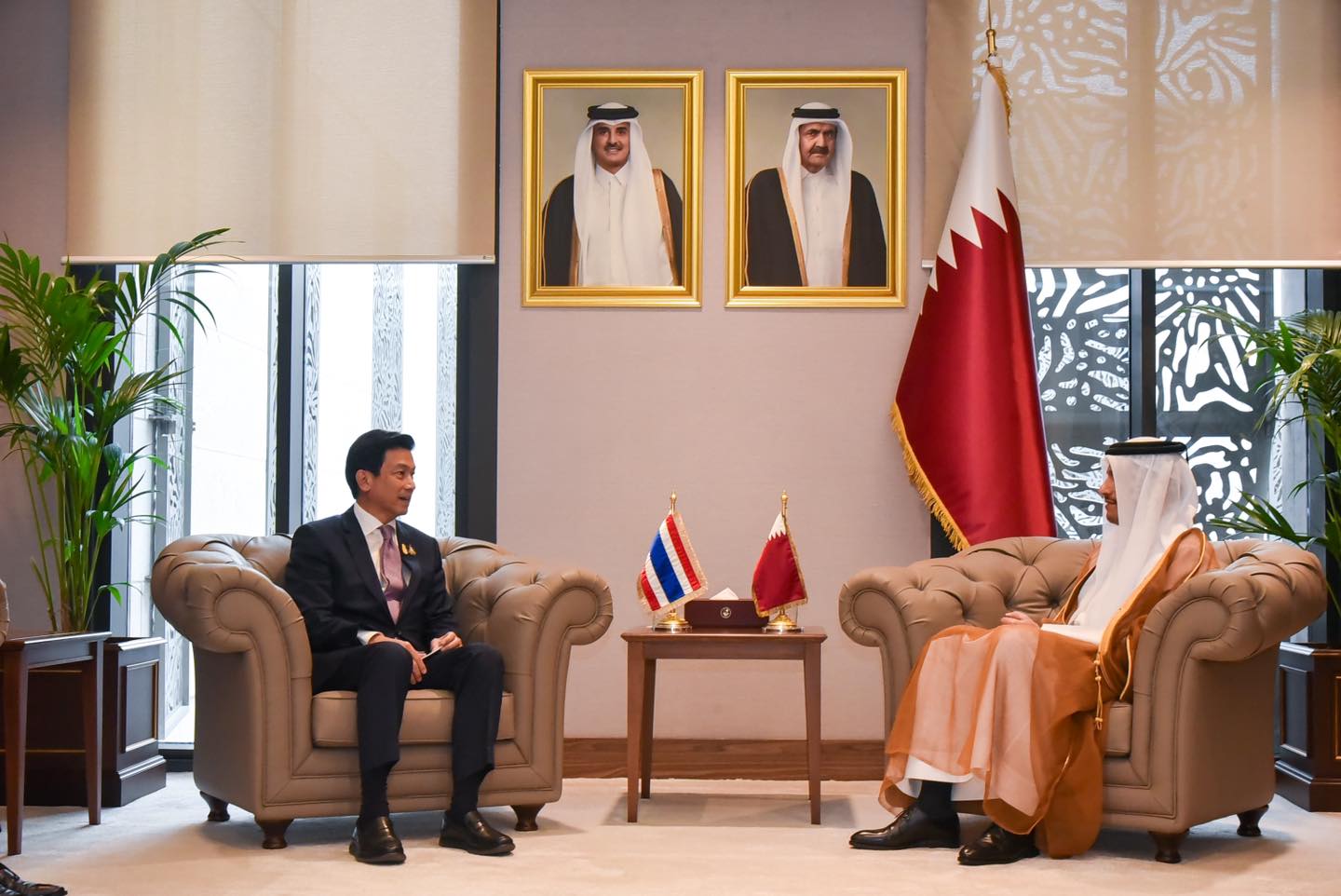Hamas said around 50 captives have been killed from the ongoing Israeli airstrikes on Gaza, which have intensified in recent days.
Qatar, Iran, and Egypt have committed to assist in the release of 23 Thai captives being held captive by Hamas, Thailand’s foreign minister said.
The pledge was made following a visit to Doha and Cairo by Foreign Minister Parnpree Bahiddha-Nukara, in which he urged for the release of Thai citizens who were taken from agriculture regions in southern Israel.
“The three countries showed willingness to help Thailand,” he said during a press conference in Bangkok over the weekend. “I pointed out that Thais working there are low-income people, and work in the agricultural sector to boost their income.”
Parnpree told Iranian foreign minister Hossein Amirabdollahian that the employment of the Thai nationals was not connected to political matters or conflicts. “I asked him to send a message to the Hamas group that they are just labourers,” Parnpree said.
Over 8,300 Thais have returned home since the Israeli war on Gaza began on October 7, but there are still over 21,500 individuals, primarily agricultural labourers, who are currently in Israel, as reported by the country’s foreign ministry.
At least 32 Thai citizens have reportedly lost their lives, and 19 are injured. The 23 Thai captives represent the largest group of foreign individuals held in captivity by Hamas, reports said.
Prior to Thursday, Thai government officials had reported the number of Thais taken captive by Hamas as 22, however that since been updated to 23.
In the past month, a delegation from Thailand’s predominantly Muslim southern region engaged in discussions with Hamas in Iran, urging the release of the captives, reports detailed.
Parnpree said Iran, Qatar, and Egypt requested Thailand’s support for a ceasefire that could accelerate the release of the captives.
During his meeting with Qatar’s Prime Minister Sheikh Mohammed bin Abdulrahman Al Thani, the latter expressed full cooperation and said: “Thai people are not participants in the Israeli-Palestine conflict.”
However, he maintained that the attack on Gaza continues to be a barrier to the h immediate release of all civilians.
Syedsulaiman Husaini, a leader within Thailand’s Shia Muslim community, indicated that Hamas had consented to release all Thai hostages.
“They are held in Gaza and it is still unsafe due to Israeli bombing,” he said, noting that freedom for the captives will come once Israel’s ceases its bombardment of the besieged Gaza Strip.
Since the start of the war on October 7, Israeli occupation forces (IOF) have killed at least 9,488 Palestinians, including over 3,826 children, with more than 1,000 others believed to be still trapped under the rubble. Some 24,158 Palestinians are severely injured.
Over in the occupied West Bank, 152 Palestinians have been killed and at least 2,100 injured.
Qatar has played a critical mediating role to release some 230 captives taken by Hamas during its unprecedented Al Aqsa Flood operation. Since then, Doha has managed to help release four captives on humanitarian grounds, though officials say the ongoing bombardment has hindered the process.
“With this violence increasing everyday, with this bombing continuous everyday our task has become even more difficult. But despite that, we remain hopeful, we remain committed to our role of reaching out to the parties with the aim of reaching a positive result,” Qatar’s Minister of State for Foreign Affairs Dr. Mohammed Al Khulaifi told Sky News last week.
On November 1, Qatar’s mediation led to the opening of the shared Gaza-Egypt Rafah crossing for the first time since the start of the war, enabling the exit of hundreds of foreign nationals and critically wounded.
A Reuters report at the time pointed to Qatar brokering an agreement on the matter between Egypt, Israel and Hamas in coordination with the US. However, it is separate from other negotiations undertaken by Doha, including the release of captives from Hamas.
Meanwhile, Israeli Prime Minister Benjamin Netanyahu has vowed to continue wiht full force despite calls for a ceasefire.
Following a meeting in Tel Aviv between Netanyahu and US Secretary of State Antony Blinken last week, the latter called for a “humanitarian pause”.
“A number of legitimate questions were raised in our discussions today, including how to use any period of pause to maximise the flow of humanitarian assistance, how to connect the pause to the release of hostages, how to ensure that Hamas doesn’t use these pauses or arrangements to its own advantage,” the top US diplomat told journalists.
However, Netanyahu quickly rejected such a move.
“I made clear that we are continuing full force and that Israel refuses a temporary ceasefire which does not include the release of our hostages,” Netanyahu said in a televised statement.
On the same day, the Israeli occupation forces (IOF) carried out new massacres at three hospitals and a United Nations-run school, all of which are sheltering thousands of Palestinians.







